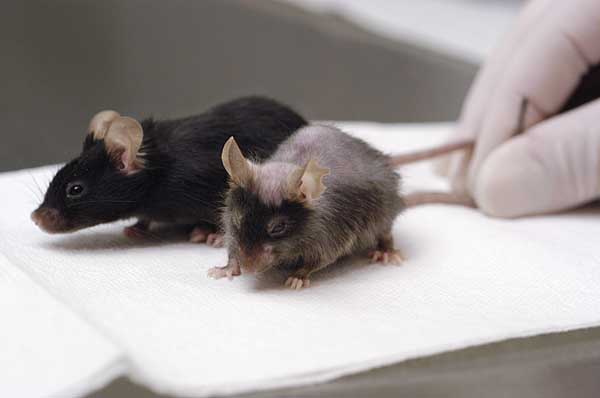by Kevin Jones, Guest Contributor
It would seemingly be perfect if we could snap our fingers and lose weight, wouldn’t it? After all, weight loss is deemed to be one of the top reasons that people participate in exercising and eating healthy in the first place. However, the weight didn’t come on in a day, and it won’t come off in a day, either. There are plenty of meal plans, supplements, and exercise programs out on the market today that promise quick weight loss – but at what risk?
What Is Healthy Weight Loss
First of all, let’s determine what a healthy weight loss rate is; for most people, research has determined that 1-2 pounds a week is ideal for both losing weight and keeping it off. However, if someone is brand new to exercise or begins a new healthy dietary routine, they might notice more weight loss in the first few weeks of the new transition (although this more drastic drop in weight won’t stay consistent, and will eventually stabilize).
Initially, this larger drop in weight isn’t actually a drop in fat mass – on the other hand, most of the weight you lose is water weight. This happens because when you are eating fewer calories, your body uses stored glycogen for fuel, and this glycogen is stuck to water molecules. When the glycogen is burned to give you energy, the water gets used up and removed right along with it, corresponding with a larger drop in weight for the first week or two of a new dietary program, exercise habits, or improved lifestyle routine.
With close to 1.5 billion overweight adults in the world, it’s no secret that losing weight – and losing it quickly – is a popular fad. However, the flip side of this is the tricky part, losing weight is a piece of the equation, but keeping it off and maintaining a healthy lifestyle is the second part of the puzzle. Because of this, discovering ways to lose weight at a slow and steady pace is key; not only will this help to keep the weight off over a longer period of time and give people more success, but it will also allow you to learn new lifestyle behaviors to maintain a healthy weight (i.e. eating more whole, nutrient-dense foods, engaging in physical activity, and getting enough rest, just to name a few).
Aside from the extra work needed to engage in healthier behaviors associated with slow and steady weight loss, attempting to lose weight quickly can put you in a zone for developing multiple health problems, and can affect your body negatively in more ways than one. Let’s take a look at some of the risk factors associated with losing weight too quickly!
Risks Of Losing Weight Too Quickly
Loss Of Vital Nutrients
For starters, you might end up severely lacking in vital nutrients that are needed for the everyday functions of the body. Losing weight quickly typically involves an increased deficit in calories, and this can lead to not consuming enough vitamins and minerals that are needed. When you lack the calories – and subsequently, the nutrients – that your body needs to recover, build muscle, and work appropriately, you put yourself at risk for brittle bones, a lowered immune system (putting you at risk of infection and disease), and excessive fatigue from lack of vitamins.
Slower Metabolism
A slower metabolism is another side effect of losing weight too quickly; since your body’s metabolism is essentially determining how much fuel you are needing to burn every day based on your activities and food intake, dropping calories out of your diet can considerably lower your metabolism. While this might not seem like a big deal, it is! A lower metabolism essentially causes your body to burn fewer calories each day than it typically would, and some research even shows up to a 23% decrease in calories that are burned each day. This doesn’t always go away when you stop losing weight quickly, either, your metabolism might take a while to get back on track and burning appropriately, which could affect your health and weight for a long time.
Muscle Loss
Lastly, your body could end up losing muscle as part of your quick weight loss routine. Granted, eliminating calories from your diet will have you lose weight, yes, but aside from a lot of that weight being water, some of it can also be muscle. A recent study done with people on a 500 calorie diet versus a 1250 calorie diet showed significant results; by the end of the trial, the participants on the 500 calorie diet lost six times more muscle than those on the 1250 calorie diet – an astounding loss in muscle in just a five-week span of time.
While these are just a few of the risk factors that are present with losing weight quickly, there are many more (including dehydration, fatigue, and muscle cramps). It might be tempting to lose weight as fast as you can, but preparing your body and lifestyle to lose it at a healthy rate will help the weight stay off over the long term, and will decrease the side effects that can come along with fast weight loss. Engaging in physical activity and incorporating healthy food into your routine will have you on track to losing weight safely and effectively!
About The Author:
Kevin Jones has mastered a busy lifestyle with work and fitness combined with family life. He writes offering solutions for personal fitness and time management as well as keeping families fit together by utilizing activities and diet.














6 Comments
Losing weight through diet and exercise is the way to go, and slowly at that, as talked about here. When liposuction is done and fat cells are removed from the body surgically, through cooling, laser, or via chemical methods, there are many negative changes to metabolism and body contour that may sometimes be evident immediately, or become apparent over the long-term. Adipose tissue is an important endocrine organ; removing these vital cells is not magic. The remaining fat cells experience hypertrophy and / or hyperplasia in the long-term resulting in an increase in toxic, visceral disease producing fat, body deformities, (such as the arms growing larger), problems with hormonal balance and many other serious issues to which there are no solutions.
PD, where are you?
Thanks for the inquiry, DG. I’m concentrating on working elsewhere, mainly Twitter. Very tough to make a living just on this website, and writing articles for it is quite time-consuming. I haven’t given up though. Also, I write daily emails to my list, and you can sign up for them here: https://pdmangan.com/list
Thank you very much for your reply, PD. I am sure all readers/fans of your blog will be interested to know what you have been up to recently. I have purchased and read Dumping Iron and am a believer. With a ferritin of 166, my doctor said, “I do not recommend that you donate blood for therapeutic reasons.” Naturally I tried anyway, but the Australian Red Cross tossed me out on my ear when I said I wanted to donate only whole blood, not plasma. “What? Do you have hemochromatosis? Oh no, we don’t allow that.” I have to get the genetic test for hemochromatosis before I can apply again, not based on my test results, which they have never seen, but on the fact that I wanted to reduce my ferritin.
This is old knowledge, for the latest you may want to look up Dr Jason Fung “the Aetiology of Obesity” series on YouTube. It is all about controlling or resetting insulin levels and eliminating insulin resistance. Dr Fung has cured diabetes patients after 25 years with fasting. Fasting resets the hormones, weight loss without muscle loss as GH skyrockets 10 to 15x. No lower metabolism, in fact a higher state is attained as a hunter looking for the next meal. After a few days no more hunger, clear head, no loss of muscle. Only do not fast if you are underweight otherwise the optimal method of weight loss and hormone reset, plus the easiest diet to follow, just drink water. World record fast is 380 days.
FYI, re: intermittent fasting. For anyone is the SF Bay Area, this class might be of interest. Note that Dr. Aseem Malhotra is speaking.
https://continuingstudies.stanford.edu/courses/liberal-arts-and-sciences/ketogenic-diets-and-intermittent-fasting-fads-facts-and-fiction/20191_WSP-161